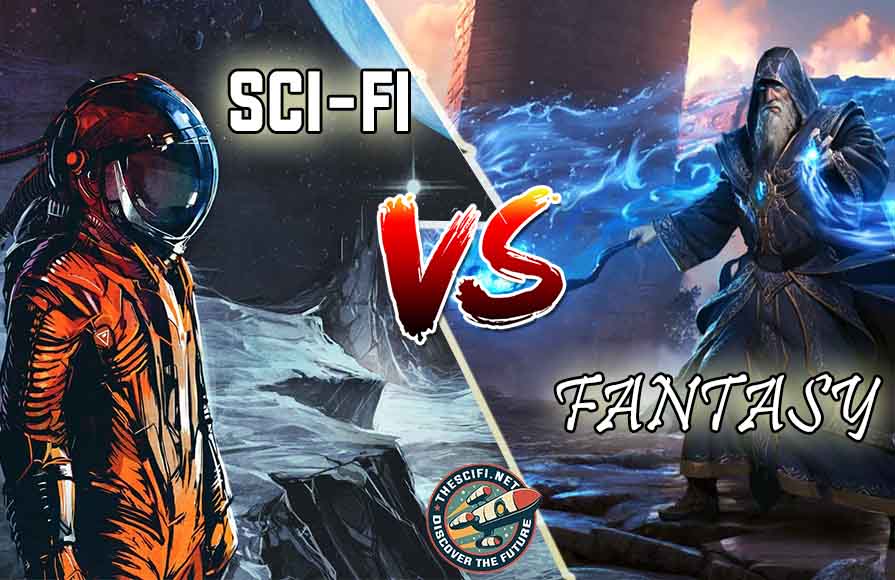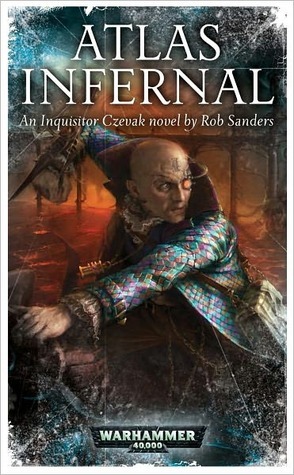Is Fantasy Or Sci-fi Better?
When it comes to the world of imagination and storytelling, the battle between fantasy and sci-fi has been raging on for decades. Both genres have their own dedicated fan bases, each claiming that their preferred genre is the superior one. But is there really a definitive answer to the question, “Is fantasy or sci-fi better?” Well, let’s dive into the enchanting realms of fantasy and the futuristic wonders of science fiction to explore the unique qualities and appeal of each.
In the realm of fantasy, magic weaves its spell, mythical creatures roam, and epic quests unfold. From the enchanting worlds of J.R.R. Tolkien’s Middle-earth to the spellbinding tales of Harry Potter, fantasy literature has captivated readers with its rich world-building and imaginative storytelling. It offers an escape from reality, allowing us to delve into realms where anything is possible. On the other hand, science fiction takes us on a journey to the future, where advanced technology, space exploration, and extraterrestrial life are the norm. From Isaac Asimov’s thought-provoking visions of the future to the awe-inspiring adventures of Star Wars, sci-fi pushes the boundaries of our imagination and explores the endless possibilities of what lies beyond our own world.
So, is fantasy or sci-fi better? Well, that’s a question that ultimately boils down to personal preference and the individual’s taste for the mystical or the futuristic. Each genre offers its own unique blend of escapism, wonder, and entertainment. Whether you find solace in the realms of magic and mythical creatures or are captivated by the possibilities of advanced technology and intergalactic adventures, both fantasy and sci-fi have the power to transport us to worlds beyond our wildest dreams. So, embrace your inner wizard or embrace the futurist within you and embark on a journey that will leave you spellbound or starstruck. The choice is yours.
Fantasy and sci-fi are both popular genres, but which one is better? Well, it ultimately depends on personal preference. Fantasy offers enchanting worlds filled with magic and mythical creatures, while sci-fi explores futuristic worlds with advanced technology and scientific concepts. Some people prefer the imaginative escapism of fantasy, while others are drawn to the thought-provoking nature of sci-fi. Ultimately, the best genre is the one that resonates with you and sparks your imagination.

Is Fantasy or Sci-Fi Better?
Fantasy and science fiction are two popular genres that have captivated readers and viewers for decades. Both genres transport audiences to imaginative worlds and explore themes of adventure, heroism, and the unknown. But when it comes to choosing between fantasy and sci-fi, which one is better? In this article, we will delve into the characteristics of each genre, discuss their strengths and weaknesses, and ultimately determine if one is superior to the other.
The Allure of Fantasy
Fantasy literature and films have a long and rich history, dating back to ancient myths and legends. This genre is characterized by magical elements, mythical creatures, and epic quests. One of the key appeals of fantasy is its ability to transport readers and viewers to enchanting worlds filled with wonder and imagination. From the mystical realms of J.R.R. Tolkien’s Middle-earth to the wizarding world of Harry Potter, fantasy allows us to escape reality and embark on extraordinary adventures.
In fantasy, anything is possible. The genre often explores themes of good versus evil, the power of destiny, and the importance of friendship and loyalty. It taps into our innate desire for escapism and offers a sense of hope and possibility. Whether it’s dragons, wizards, or epic battles, fantasy captivates us with its richly imagined worlds and larger-than-life characters.
The Strengths of Fantasy
One of the strengths of fantasy is its ability to ignite our imaginations. By immersing us in fantastical settings and introducing us to magical beings, fantasy sparks our creativity and allows us to dream beyond the confines of reality. It encourages us to believe in the extraordinary and pushes the boundaries of what we perceive as possible.
Furthermore, fantasy often delves into universal themes and moral dilemmas. Through its fantastical elements, the genre provides a lens through which we can explore complex ideas and reflect on our own lives. It allows us to grapple with concepts of good and evil, the nature of power, and the importance of hope. Fantasy has the power to inspire, challenge, and provoke thought, making it a valuable genre for both entertainment and introspection.
The Weaknesses of Fantasy
While fantasy has many strengths, it also has its weaknesses. One criticism often leveled against fantasy is its potential for escapism without substance. Some argue that the genre can become formulaic, relying too heavily on tropes and clichés. Critics claim that fantasy can prioritize spectacle over depth, resulting in stories that lack emotional resonance or meaningful character development.
Additionally, the vastness of fantasy worlds and the intricacies of their mythologies can be overwhelming for some readers or viewers. Keeping track of numerous characters, locations, and plotlines can prove challenging, especially in epic fantasy series. This complexity may alienate those who prefer more straightforward narratives or who struggle to invest in expansive fictional universes.
In conclusion, fantasy offers a captivating escape into magical realms, filled with wonder and imagination. Its strengths lie in its ability to inspire creativity and explore complex themes, while its weaknesses stem from the potential for formulaic storytelling and overwhelming complexity. However, whether fantasy is better than sci-fi is subjective and ultimately depends on personal preference and individual tastes. Both genres have their own unique appeal and can provide hours of entertainment and thought-provoking experiences. The choice between fantasy and sci-fi comes down to the individual’s desire for magic and enchantment or futuristic technology and scientific exploration.
Key Takeaways: Is fantasy or sci-fi better?
- Fantasy and sci-fi are both popular genres that offer unique experiences.
- Fantasy allows for imaginative worlds, magical creatures, and epic quests.
- Sci-fi explores advanced technology, futuristic settings, and scientific concepts.
- Preference for fantasy or sci-fi depends on personal interests and what resonates with the individual.
- Both genres provide escapism, entertainment, and the opportunity to explore new ideas and perspectives.
Frequently Asked Questions
Here are some frequently asked questions about the debate between fantasy and sci-fi:
1. What are the main differences between fantasy and sci-fi?
Fantasy and sci-fi are both popular genres, but they have distinct characteristics. Fantasy often involves magic, mythical creatures, and imaginary worlds, while sci-fi focuses on scientific and technological advancements, often set in the future or on other planets. While both genres allow for escapism, the themes and settings differ.
Fantasy takes inspiration from folklore and mythology, creating worlds with their own rules and magic systems, allowing readers to imagine and explore limitless possibilities. On the other hand, sci-fi explores the potential of scientific progress and its impact on society, presenting futuristic visions that challenge our understanding of the world.
2. Which genre offers more creative freedom?
Both fantasy and sci-fi offer ample creative freedom, but in different ways. Fantasy allows authors to create entirely new worlds, complete with unique cultures, creatures, and magical systems. This freedom enables authors to let their imagination run wild, resulting in fantastical and awe-inspiring stories.
On the other hand, sci-fi offers creative freedom through speculation about future technologies, scientific advancements, and their impact on society. Authors can explore hypothetical scenarios and envision the consequences of scientific progress, sparking new ideas and conversations about the future of humanity.
3. Which genre appeals to a wider audience?
The appeal of fantasy and sci-fi varies among readers. Fantasy often appeals to those seeking a sense of wonder and escapism, drawing in readers with its magical elements and epic quests. It has a timeless quality that resonates with readers of all ages, from children to adults.
Sci-fi, on the other hand, attracts readers who are fascinated by scientific advancements and speculative futures. It appeals to those who enjoy exploring the possibilities of technology and its impact on society. While sci-fi has a dedicated fanbase, it may not have the same broad appeal as fantasy.
4. Can fantasy and sci-fi coexist in a story?
Absolutely! Many authors blend elements of both fantasy and sci-fi in their stories, creating hybrid genres known as “science fantasy” or “science fiction fantasy”. These stories combine magic and advanced technology, offering the best of both worlds.
By merging these genres, authors can explore new and exciting narratives that push the boundaries of imagination. This blending of fantasy and sci-fi allows for unique storytelling opportunities, where characters can wield magic alongside futuristic gadgets.
5. Is one genre objectively better than the other?
There is no definitive answer to which genre is better, as it ultimately comes down to personal preference. Some readers may prefer the enchanting worlds and mystical elements of fantasy, while others may be captivated by the thought-provoking concepts and technological wonders of sci-fi.
Both genres have their own merits and can offer incredible storytelling experiences. It’s important to embrace the diversity of genres and appreciate the unique qualities they bring to the literary landscape.
FANTASY vs SCIENCE FICTION: What’s the Difference?
Final Thoughts: Is Fantasy or Sci-Fi Better?
After diving into the world of fantasy and science fiction, it’s clear that both genres have their own unique appeal. While fantasy takes us on magical journeys filled with mythical creatures and epic quests, science fiction transports us to futuristic worlds with advanced technology and mind-bending concepts. So, is one better than the other? Well, it ultimately comes down to personal preference and what resonates with you as a reader or viewer.
Fantasy has a charm that is hard to resist. The allure of knights, wizards, and fantastical realms can ignite our imaginations and transport us to a world where anything is possible. It allows us to escape the constraints of reality and explore themes of heroism, destiny, and the battle between good and evil. The genre often delves into rich world-building, creating intricate societies and cultures that captivate our senses. From J.R.R. Tolkien’s Middle-earth to J.K. Rowling’s Wizarding World, fantasy has given us unforgettable stories that have become cultural touchstones.
On the other hand, science fiction offers a glimpse into what the future may hold. It pushes the boundaries of our understanding and challenges us to contemplate the consequences of scientific advancements. From dystopian societies to interstellar travel, science fiction explores complex themes such as artificial intelligence, the nature of humanity, and the ethical implications of technology. It sparks our curiosity and forces us to question our place in the universe. With visionary authors like Isaac Asimov and Philip K. Dick, and groundbreaking films like “Blade Runner” and “The Matrix,” science fiction has left an indelible mark on popular culture.
In the end, the debate between fantasy and science fiction comes down to personal taste. Both genres have the power to transport us to extraordinary worlds and provoke profound thoughts. Whether you prefer the whimsy of magic and mythical creatures or the speculative nature of future possibilities, there is no right or wrong answer. So, embrace the diversity of storytelling and let your imagination soar as you explore the realms of both fantasy and science fiction.






